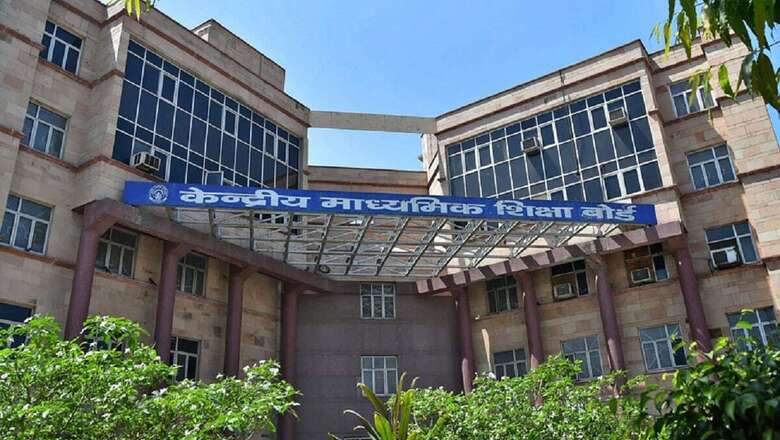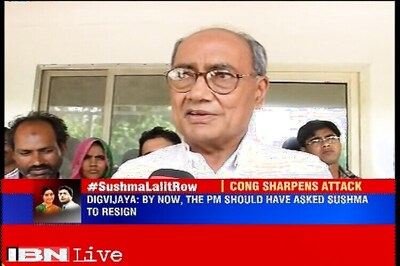
views
The Central Board of Secondary Education (CBSE) has reduced the syllabus of Class 10 Social Science paper, which can be seen on board’s official website at cbseacademic.in. The examination will take place on May 27.
The CBSE said that the main objective of Class 10 Social Science paper is to develop an understanding of the processes of change and development-both in terms of time and space, through which human societies have evolved, develop an understanding of contemporary India with its historical perspective, deepen knowledge about and understanding of India’s freedom struggle and help them understand the framework of the Indian constitution.
Union Education Minister Ramesh Pokhriyal ‘Nishank’ had earlier announced that the CBSE Class 10 board exam 2021 syllabus to be reduced by 30 per cent to lessen the burden on the students who had to study through the online classes in 2020.
[hq]CBSE Class 10 Social Science Syllabus: How to Download[/hq]
[hans][hstep]Step 1: Visit the official website at cbseacademic.in[/hstep]
[hstep]Step 2: On the homepage, from the menu bar, click on the ‘Curriculum’ link and open the link to the revised CBSE Class 10 syllabus 2021. A new page will open[/hstep]
[hstep]Step 3: Open the tab of Class 10 and click on the Social Science tab[/hstep]
[hstep]Step 4: You will be able to see CBSE Class 10 Social Science deleted topics[/hstep]
[hstep]Step 5: Now, save reduced syllabus and take a hard copy for your reference[/hstep][/hans]
Deleted Social Science Theory Topics
Unit 1 – India and the Contemporary World – II
Section 2 : Livelihoods, Economies and Societies
Chapter 3: The Making of a Global World
Chapter 4: The Age of Industrialisation
Section 3: Everyday Life, Culture and Politics
Chapter 5: Print Culture and the Modern World
UNIT 2: Contemporary India – II (GEOGRAPHY)
Chapter 2: Forest and Wildlife
Chapter 3: Water Resources (Only map questions will be asked)
Chapter 5: Mineral and Energy Resources (Only map questions will be asked)
UNIT 3: Democratic Politics –II (POLITICAL SCIENCE)
Chapter 3: Democracy and Diversity
Chapter 4: Gender, Religion and Caste
Chapter 5: Popular Struggles and Movements
Chapter 8: Challenges to Democracy
Read all the Latest News, Breaking News and Coronavirus News here



















Comments
0 comment